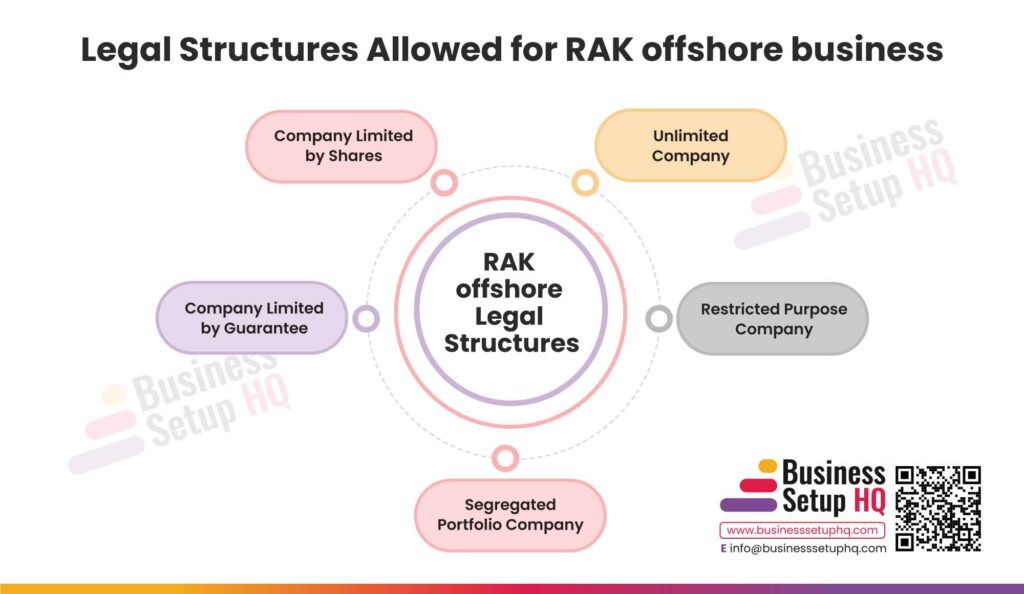Browsing the World of International Organization: Insights on Offshore Company Formation
Offshore Company Formation offers a tactical avenue for worldwide service procedures. It uses significant advantages, such as tax optimization and enhanced privacy. The process is not without its difficulties. Understanding the complexities of various jurisdictions and regulatory requirements is important. As businesses consider these choices, the steps included can considerably impact their lasting success. What are the crucial factors that can bring about efficient overseas monitoring?
Comprehending Offshore Firms: Meaning and Function
Offshore firms have become a focal point in international organization conversations as a result of their distinct legal and economic frameworks. These entities are established in territories outside of the owner's nation of house, often with positive regulatory settings. Commonly, offshore business offer various objectives, such as possession defense, tax obligation optimization, and boosted personal privacy. They can operate in numerous markets including financing, profession, and innovation, supplying versatility for worldwide operations.The defining feature of an overseas Company is its capacity to perform business globally while taking advantage of lowered tax liabilities and regulative burdens. This structure interest capitalists and entrepreneurs seeking to diversify their profiles and take care of risks efficiently. Additionally, numerous offshore jurisdictions use incentives to draw in foreign financial investment, resulting in a rise in the Formation of these firms. Comprehending the interpretation and objective of offshore firms is important for navigating through the intricacies of worldwide business and capital circulation.
Key Benefits of Offshore Company Formation
The Formation of an overseas Company uses numerous compelling benefits that draw in capitalists and business owners alike. Among the main benefits is tax obligation optimization; numerous jurisdictions give desirable tax obligation rates or exemptions, allowing companies to make the most of profits. Additionally, overseas companies commonly delight in better discretion, as lots of jurisdictions have rigid privacy regulations protecting the identifications of Company proprietors and shareholders.Another substantial advantage is property protection. Offshore entities can secure properties from political instability and economic declines in the proprietor's home nation. These companies can assist in international trade, supplying very easy accessibility to worldwide markets and simplifying cross-border transactions.The adaptability in corporate framework additionally charms to business owners, as overseas firms can be customized to meet specific operational requirements. In general, the tactical Formation of an offshore Company can lead to improved monetary safety and security, functional efficiency, and a robust worldwide visibility.

Typical Obstacles in Establishing Offshore Entities
Establishing overseas entities presents several challenges that organizations have to navigate. Trick issues include regulative conformity, which can differ significantly across jurisdictions, and the impact of social distinctions on operations. Additionally, organizations must consider the dangers and costs related to preserving an overseas presence, which can influence general stability.
Governing Conformity Issues
Navigating regulative conformity issues poses considerable challenges for companies when they seek to develop offshore entities. Each territory has its very own set of laws and policies, which can vary commonly and might be challenging to browse. Companies usually deal with challenges pertaining to tax obligation compliance, anti-money laundering guidelines, and reporting demands. Additionally, adjustments in worldwide tax obligation regulations can produce uncertainty, making it important for services to stay upgraded on compliance obligations. Failing to abide by these guidelines can result in extreme penalties, consisting of fines and reputational damages. Recognizing the legal structure and involving with neighborhood experts is vital for successful offshore operations, making sure that businesses can operate within the boundaries of the law while maximizing their international approach.
Social Distinctions Effect

Price Considerations and Risks
Steering through the economic landscape of offshore entity Formation presents various cost considerations and intrinsic threats. First arrangement expenses frequently include legal costs, registration expenses, and conformity costs, which can collect substantially. In addition, recurring upkeep costs such as annual charges and audit solutions need to be factored in. Moreover, fluctuating regulatory environments in various territories position dangers, possibly bring about unanticipated expenses or legal complications. Businesses may additionally encounter obstacles connected to taxation, financial, and reputational issues, which can impact profitability and functional effectiveness. Subsequently, potential business owners need to conduct comprehensive due diligence and economic forecasting to minimize these dangers and ensure sustainable development. Understanding these price considerations is essential for successful offshore business ventures.
Steps to Establish an Offshore Company
Developing an overseas Company involves numerous vital steps that require cautious factor to consider. Secret elements include guaranteeing and choosing the ideal jurisdiction compliance with regional laws, along with collecting necessary documents. Comprehending these components is vital for an effective offshore organization arrangement.
Choosing the Right Jurisdiction
Picking the right territory is essential for any individual aiming to establish up an offshore Company, as it can greatly influence the organization's legal obligations, tax obligations, and functional simplicity. Various variables should be taken into consideration, consisting of the political stability, regulatory atmosphere, and tax obligation rewards offered by prospective territories. Popular options frequently include countries with positive tax obligation regimes, such as the British Virgin Islands or Cayman Islands, due to their reduced or no tax prices. Additionally, the convenience of operating and the credibility of the jurisdiction can affect financier confidence and market accessibility. Ultimately, a well-informed choice based on detailed research will certainly ensure the offshore Company is positioned for long-term success and compliance with international requirements.
Needed Paperwork and Conformity
When setting up an overseas Company, comprehending the needed paperwork and conformity demands is important to ensure a smooth process. Secret records commonly include a certification of incorporation, a memorandum and write-ups of organization, and evidence of identity for supervisors and investors. Some jurisdictions might call for extra information, such as business plans or bank references. Conformity with regional laws is essential, which usually involves appointing a registered agent and maintaining an authorized workplace. Regular reporting and adherence to tax obligation obligations need to additionally be thought about. Failure to follow these demands can bring about fines or even dissolution of the Company. Thorough preparation and appointment with lawful professionals can help navigate these intricacies efficiently.
Selecting the Right Territory for Your Offshore Company
Just how can one determine the most appropriate territory for an overseas Company? Choosing the ideal territory calls for cautious consideration of multiple elements. The lawful and tax obligation atmosphere plays a vital duty; territories with positive tax routines may boost business profitability. In addition, the political security and economic climate of an area can impact lasting service viability.Another essential aspect is the availability of economic services and financial facilities, which help with smooth procedures. Potential company proprietors ought to additionally take into consideration the ease of doing organization, consisting of the rate of registration and the quality of regulations.Furthermore, language barriers and cultural distinctions can influence operations; for that reason, lining up with a territory that aligns with service goals and personal comfort is crucial. Ultimately, extensive research and specialist recommendations can direct business owners in making an informed choice that aligns with their critical objectives.
Compliance and Governing Factors To Consider

Ideal Practices for Handling an Offshore Organization
Managing an overseas service calls for calculated planning and meticulous execution to optimize performance and reduce risks. Developing a robust compliance framework is vital to navigate varying laws throughout jurisdictions. Routine audits and threat evaluations assist determine possible vulnerabilities.Moreover, leveraging regional proficiency through collaborations with local professionals can enhance operational effectiveness and social understanding. Making use of modern technology, such as cloud-based monitoring systems, simplifies communication and data monitoring, enabling better decision-making. Additionally, maintaining transparent economic documents and making sure prompt tax obligation filings are vital to promote the Company's integrity. Purchasing team training and growth cultivates a proficient labor force, promoting development and adaptability.Finally, establishing clear efficiency metrics and essential performance indicators (KPIs) aids analyze organization progression and notify tactical adjustments. By sticking to these ideal methods, companies can properly handle their overseas operations, ensuring lasting success and sustainability in an affordable global marketplace.
Regularly Asked Concerns
What Is the Price of Developing an Offshore Company?
The price of creating an overseas Company varies extensively depending on territory, lawful demands, and services required. Typically, expenditures can vary from a few hundred to numerous thousand dollars, consisting of registration, conformity, and yearly fees.
For how long Does It Take to Develop an Offshore Entity?
The time called for to establish an overseas entity varies substantially, generally varying from a few days to a number of weeks (offshore company formation). Variables influencing this period include territory, needed documentation, and the performance of the service supplier involved
Can People Type Offshore Companies Without a Business Partner?
People can indeed create offshore companies without a service companion. Numerous territories permit single-member entities, empowering entrepreneurs to establish and handle their businesses separately, while still gaining from potential tax benefits and legal securities.
Are There Any Kind Of Tax Advantages for Foreign Investors?

What Kind of Services Typically Utilize Offshore Business?
Offshore companies are regularly utilized by numerous industries, including ecommerce, money, and innovation. These entities usually serve purposes such as possession defense, tax optimization, and privacy, interesting both multinational companies and specific entrepreneurs. Offshore firms have actually ended up being a focal factor in global service discussions due to their special lawful and economic structures. They can operate in multiple industries consisting of profession, money, and innovation, providing flexibility here for global operations.The defining feature of an overseas Company is its capacity to conduct business internationally while benefiting from decreased tax responsibilities and governing burdens. Additionally, offshore firms usually enjoy greater privacy, as lots of territories have rigid privacy laws protecting the identifications of Company proprietors and shareholders.Another substantial benefit is possession protection. These firms can assist in global profession, offering easy accessibility to worldwide markets and simplifying cross-border transactions.The adaptability in business structure also charms to company owners, as overseas firms can be tailored to satisfy specific operational needs. Picking the best territory is essential for any individual looking to establish up an overseas Company, as it can significantly influence the business's legal obligations, tax obligation obligations, and operational ease.